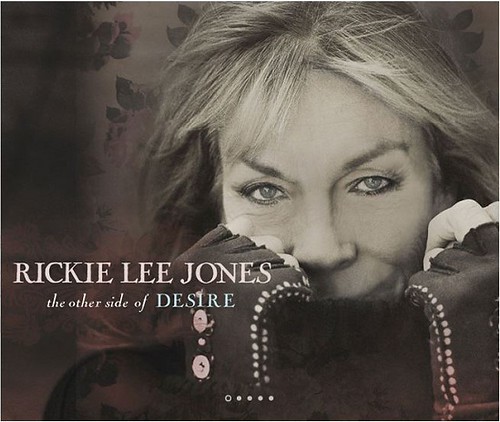
Kat: Rickie Lee Jones' The Other Side of Desire is a groove album.
That's never a bad thing.
But it's especially good news for Rickie who tends to do some of her strongest work when she's working the groove. For example, see her self-titled debut, The Magazine or the especially brilliant Traffic From Paradise.
The groove this go round is both familiar and different.
It's expanded with her move from Los Angeles to New Orleans as a bit of press has noted. (Here for the best, the interview Arun Rath did with her for NPR's All Things Considered -- link is audio and transcript.)
That Rickie would find inspiration in New Orleans is no real surprise.
As a songwriter, she's a story teller and the city is full of stories ("New Orleans Judge Paul Sens sued by man who claims judge was having an affair with his wife" was one recent local headline).
Writing in Rolling Stone's Book of Women In Rock, Elysa Gardner explained:
As an early exponent of this new generation of female rockers, Rickie Lee Jones certainly scored points in the chutzpah department. When Jones garnered her first and biggest hit with the 1979 single "Chuck E.'s in Love" (which earned her a Grammy for Best New Artist), from her self-titled debut album, she was something of an anomaly on the pop scene. At a time when disco and new wave dominated the charts, this California-based hipster offered a relatively laid-back yet more ambitious blend of singer-songwriter lyricism, bop-oriented rhythmic leanings, and neo-Beat atttidue. Her songs paid wry, poignant tribute to the underbelly of America, evoking the seedy glamour of late-night bars and all-night diners and making appealing anti-heroes of bums and runaways.
Elysa Gardner also offered that "echoes of distinctively sleepy, sinuous vocal approach have been heard in younger singers ranging from Edie Brickell to Sheryl Crow."
And she uses that voice to sketch out new travels, new characters, new vistas. In "I Wasn't Here," for example, she sings, "So where shall we go, I don't really know, But when we get there, I sure will have someone."
Rickie's grabbing your hand and taking you into a new city, a new world.
She explained to American Songwriter of this album, "In fact so many songs were written of the travel, the river, the train, the car. I'd written a song of the jealousy of the river, how the train can go anywhere, and how the river breaks her bonds to show the train that she too can go anywhere. So maybe all those ideas of loneliness, misguided bravado,"
Each track is a revelation.
And they all battle for favorite status with me.
"Blinded by the Hunt," for example, can come out on top one moment and then the next I'm arguing with myself that, for example, "Christmas in New Orleans" or "Haunted" is the best.
Certainly, "Jimmy Choos" is the most commercial.
But, again, all the tracks are revelations.
Rickie Lee Jones is back with The Other Side of Desire and, even if just musically, the world's a little better off as a result.
rickie lee jones
kats korner
the common ills